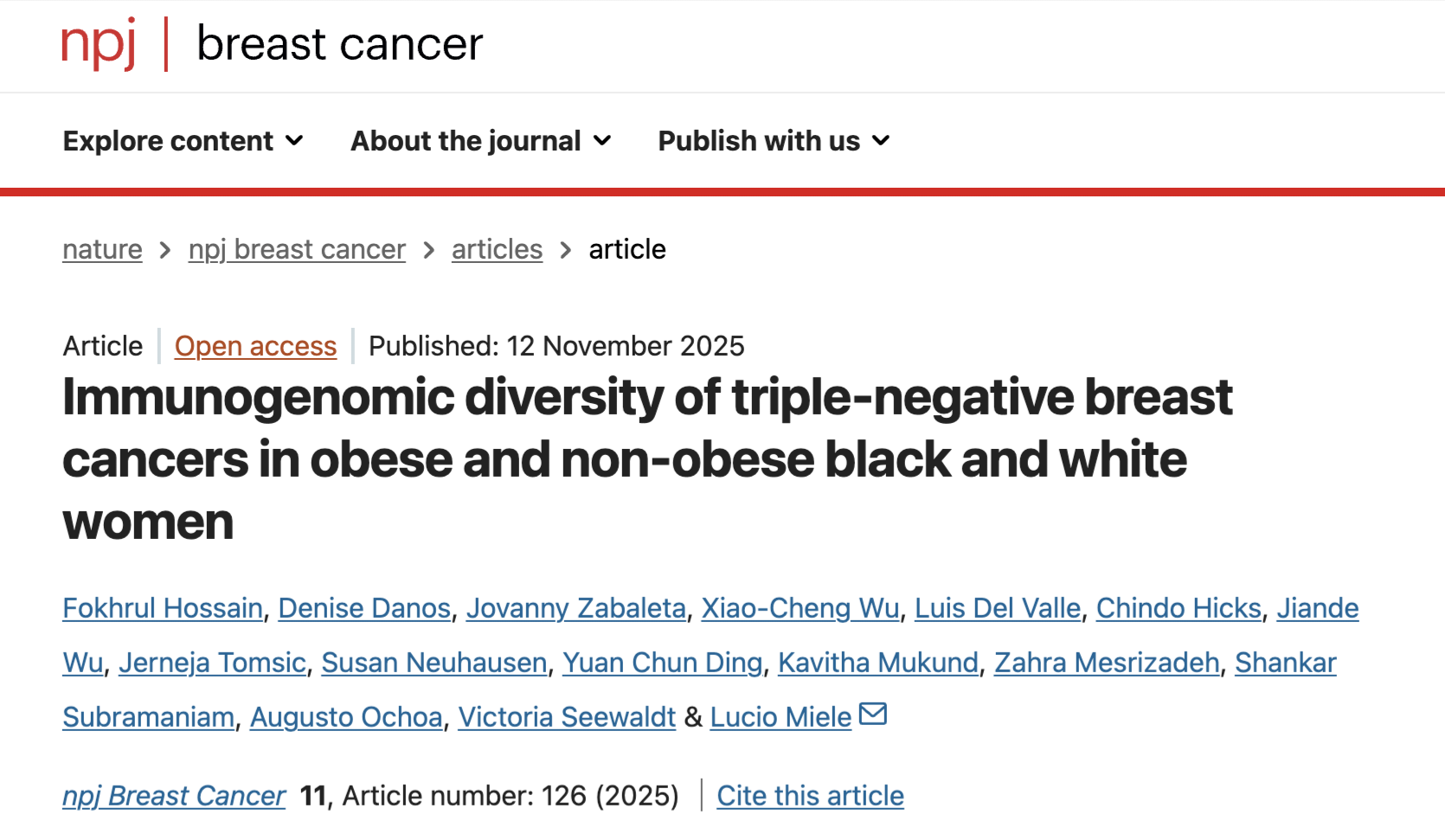
Obesity and Cancer Risk
Chronic inflammation suppresses the body's ability to fight disease, including cancer. Researchers at LSU Health New Orleans found a link between chronic inflammation, obesity, and an increased risk of cancer.
A review study team led by Maria D. Sanchez-Pino, PhD, Assistant Research Professor, Departments of Interdisciplinary Oncology and Genetics, LSU Health New Orleans' School of Medicine, Louisiana State University, examined inflammatory cells in patients before and after bariatric weight loss surgery at Ochsner Health in New Orleans. They found that weight loss in morbidly obese patients triggered a dramatic reduction in these myeloid cells which are significantly increased in people with morbid obesity compared to individuals with normal weight.
"Deciphering the molecular mechanisms by which obesity-associated metabolic factors activate or enhance the function of Myeloid-derived Suppressor Cells, as well as immunosuppressive macrophages, will allow us to identify biomarkers for prognosis and therapeutic responses. It will also lead to the discovery of potential targets for pharmacological therapies that may disrupt the pathophysiologic inflammatory link between obesity and cancer," Dr. Sanchez-Pino said.
According to the researchers, there is a tremendous overlap between inflammation and metabolic/endocrine disturbances that promote tumor growth in obesity but the biological and molecular mechanisms are not completely understood. Altered metabolic factors such as lipids, insulin, and leptin in obesity could play a major role in the activation of myeloid cells with immunosuppressive and cancer developing capabilities.
The paper is published in the June 2021 issue of Obesity. (link to https://onlinelibrary.wiley.com/doi/10.1002/oby.23108)
Dr. Sanchez-Pino and Augusto Ochoa, MD, are LCRC faculty members. Dr. Ochoa is a scientific co-director of the LCRC.




